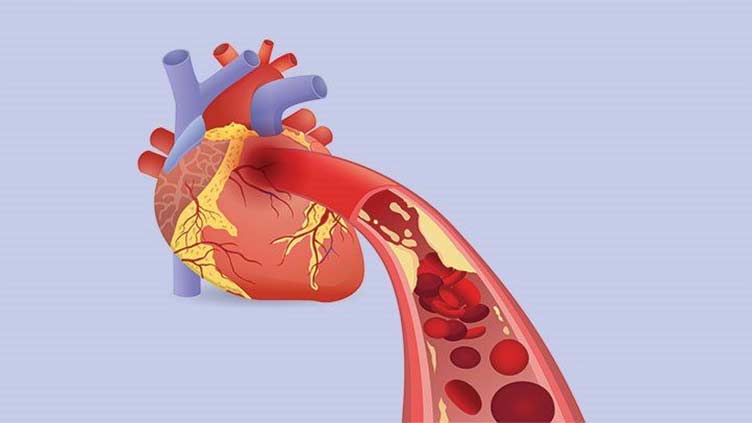Males with obesity may be more at risk of heart complications, but why?

Males with obesity may be more at risk of heart complications, but why?
ISLAMABAD, (Online) - A recent study also showed that female mice show greater levels of blood vessel growth in adipose tissue and maintain better metabolic health than males in response to the accumulation of body fat.
A new study published in iScience compared the differences in gene expression patterns of adipose tissue endothelial cells obtained from male and female mice with obesity.
The study found that endothelial cells from the adipose tissue of males with obesity expressed higher levels of inflammation-associated genes, whereas those from female mice showed increased expression of cell proliferation-related genes.
These results could potentially contribute to the understanding of the mechanisms underlying sex differences in the development of obesity and related conditions.
Sex differences and heart health risk
The study’s lead author, Dr. Tara Haas, a professor of molecular biology and biochemistry at York University in Canada, explained for Medical News Today:
“We show in this study that male and female endothelial cells — these are the cells that compose blood vessels — from mice respond differently to the stress of a long-term high-fat diet. We found that endothelial cells in females displayed signals to grow and divide, but endothelial cells in males showed evidence of inflammation.”
“By identifying which specific genes that are controlled differently in the male and female endothelial cells, we can begin to understand what signals enable healthy endothelial cell function in females,” added Dr. Haas. “This knowledge can be used to design treatments that can improve the overall health of obese males and females by improving blood vessel health.”
Dr. Silvia Corvera, a professor in the Program in Molecular Medicine at the University of Massachusetts Medical School, not involved in this study, also noted that “[w]hile the precise reasons for [the sex differences in susceptibility to metabolic diseases] are unknown, they are associated with the distribution and function of adipose tissue within the body.”
“Adipose tissue is highly vascularized, and its function is greatly affected by the characteristics of its blood vessels,” she explained.
“Endothelial cells are the main components of blood vessels, so finding that they express different genes between male and female mice provides a clue as to why adipose tissue also differs and how these differences might influence disease risk,” said Dr. Corvera.
The importance of blood vessel formation
Tissue growth requires the growth of new blood vessels to meet the increased demand for oxygen and nutrients. This process of the generation of new blood vessels from pre-existing blood vessels is known as angiogenesis.
Endothelial cells that form the inner lining of the blood vessels play an important role in coordinating the process of angiogenesis.
Endothelial cells also influence energy balance by regulating the exchange of oxygen, nutrients, and other molecules between the blood vessels and their surroundings. More recently, studies have shown that endothelial cells can also modulate the inflammatory response.
The consumption of excess calories leads to their accumulation as white adipose tissue, which stores energy as fat. Similar to other tissues, the accumulation of white adipose tissue is accompanied by angiogenesis during the early stages.
Blood vessel formation in obesity
However, studies have shown that more pronounced levels of accumulation of white adipose tissue in obesity are accompanied by inadequate growth of blood vessels and impaired functioning of endothelial cells.
The inadequate growth of blood vessels and subsequent lack of sufficient oxygen can lead to stress and inflammation in the adipose tissue.
Moreover, impaired angiogenesis can hinder the ability of the adipose tissue to store excess energy and cause imbalances in the metabolism of the entire body.
The role of angiogenesis in obesity is underscored by evidence showing that increasing the growth of blood vessels can counteract the negative effects associated with excess accumulation of fat.
A recent study revealed that female mice show greater proliferation of blood vessels than males in response to fat accumulation.
Fat accumulation due to the mice being fed a high-fat diet resulted in impaired adipose tissue function in male but not female mice.
These findings are consistent with studies showing sex differences in adipose tissue function and distribution and the risk of cardiometabolic conditions.
PreviousTrusted Source studiesTrusted Source have found at least some of the sex differences in the gene expression profile of endothelial cells may be present from early developmental stages.
Given the role of endothelial cells in angiogenesis, the new study’s authors examined how sex differences in endothelial cell function could potentially explain the different patterns of angiogenesis in response to accumulating fat.

